Ed Hewitt
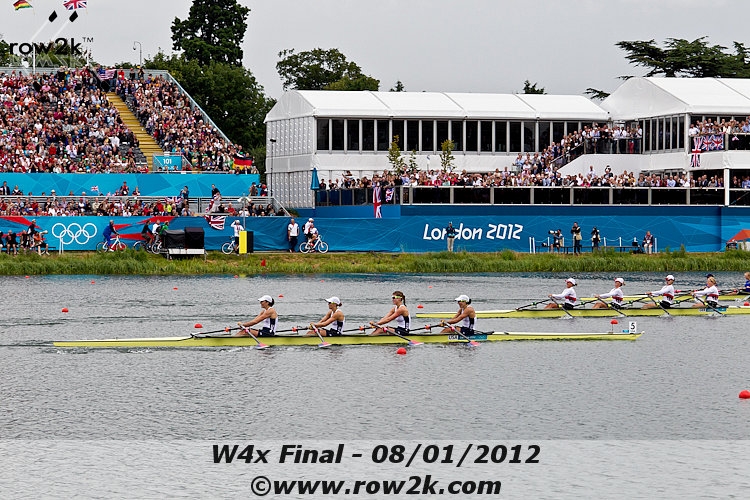
A new study by Linda Henkel at Fairfield College has found that taking pictures of events causes people to remember that event less well. The study, published in the journal Psychological Science, found that taking photos of a thing or event, at least taking somewhat generic, "whole scene" photos, tends to impair your memory of that thing or event.
The results are actually a bit more complex than reported in the mass media, where most writers have latched onto the idea that "taking pictures of an event makes you less likely to remember it." In fact, the study, which was done on a museum tour, said that if you take photos of each object as a whole, you remember fewer objects, less details about things near the objects, and less about where they were in the museum than if you took no photos at all. However, if participants zoomed in on a particular detail of an object, they both remembered that object better, remembered more about details of unrelated/nearby things they did not specifically zoom in on, and remembered more stuff overall.

So, the rowing connection: when photographing rowing, and especially when photographing big races as they charge to the finish line, the experience of watching a race with your own eyes compared to that of watching a race through a giant telephoto or zoom lens could not be more different. The former experience is all about general impressions, a sense of the race as it unfolds, and the overall environment, excitement, intensity, and more in very satisfying ways. The latter experience of watching intently through a lens can be incredibly narrow, but as a result intensely heightened as well, and very satisfying in a different way.
Add to that a photographer's credo that "if you saw it through the lens, you did not get the picture" – which derives from the fact that during the moment of photo capture, the mirror flips up and the viewfinder goes black while the image is written to the sensor (or film) – and the experience of watching a rowing race through a big telephoto lens is really different from the norm. You see some things happen in sometimes excruciating detail (especially toward the end of a 2k race in a grueling sport like rowing), and others you just somehow absorb – much like the people who zoomed in during their museum tours and somehow noticed a lot more things on which they had not zoomed in.
Further, especially when shooting across the finish line, there can be a truly chaotic mass of bodies competing for your lens space (and your camera's autofocus), and as you work to sort all that out to get the photos of the crews and events that you really want to capture, things get pretty wild.
For many photographers, their sense of what actually went on in any given regatta or race does not come together until they download all their photos and are able to fill in the gaps in their experience of the event. That's why, for rowing photographers who really care about the racing, the moment of downloading all the photos can be an electrifying experience, as it can be the first time you actually "see" the whole race as it happened.
Check out the photos above, from the final of the women's quad at the 2012 Olympics – one is a "photo of an event as a whole," the other a tight zoom on a specific detail from that event. Which do you think sticks with you more, and is more indelibly written in your memory banks? Seems like an easy one to answer.
If you enjoy and rely on row2k, we need your help to be able to keep doing all this. Though row2k sometimes looks like a big, outside-funded operation, it mainly runs on enthusiasm and grit. Help us keep it coming, thank you! Learn more.
Comments | Log in to comment |
- Bont Rowing
- Calm Waters Rowing
- Concept 2
- Craftsbury Sculling
- The Crew Classic
- CrewLAB
- Croker
- Dad Vail Regatta
- Durham Boat Co.
- Empacher
- Faster Masters
- Filippi
- Fluidesign
- h2row.net
- HUDSON
- Live2Row Studios
- Nielsen-Kellerman
- Oak Ridge RA
- Peinert Boat Works
- Pocock Racing Shells
- Race1 USA
- Rockland Rowing Masters Regatta
- RowKraft
- Rubini Jewelers
- Vespoli USA
- WinTech Racing
- Bont Rowing
- Calm Waters Rowing
- Concept 2
- Craftsbury Sculling
- The Crew Classic
- CrewLAB
- Croker
- Dad Vail Regatta
- Durham Boat Co.
- Empacher
- Faster Masters
- Filippi
- Fluidesign
- h2row.net
- HUDSON
- Live2Row Studios
- Nielsen-Kellerman
- Oak Ridge RA
- Peinert Boat Works
- Pocock Racing Shells
- Race1 USA
- Rockland Rowing Masters Regatta
- RowKraft
- Rubini Jewelers
- Vespoli USA
- WinTech Racing



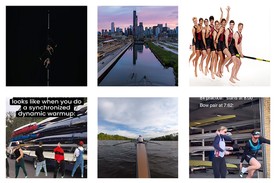


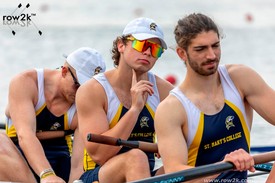
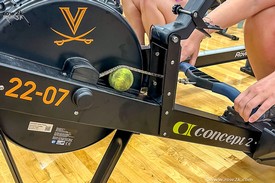
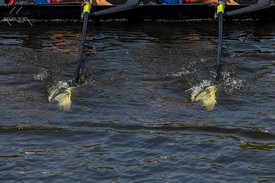
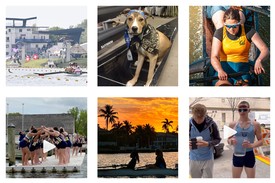
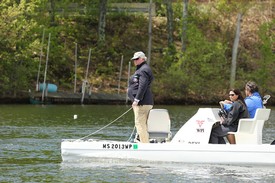






12/14/2013 2:31:20 PM
I think the memories are also impacted by the choice to focus and knowledge of the topic. When, as rowers & photographers, we shoot an event we're using our knowledge and equipment to highlight what we think is important and capture it in a way that hopefully transfers our "vision" to all who see the final image. Our "feel" of the event lets us absorb the overall spectacle quickly, allowing us to zero in on the special emotion involving details. In addition, we know what our equipment can do and which camera/lens combination to use as a vehicle to "see" things from our chosen perspective.
In the article's museum example, most casual visitors are trying to take in everything, so the use of photography may actually distract them from that goal. However, if the visitor is an expert in a certain field, using a camera to preserve key (new?) information presented by the museum's section on that topic would likely add to the visitor's knowledge of the field.
Bottom line, photography is a tool to capture a moment. If it's used as a proxy for, rather an enhancement to, a base of knowledge it's easy for the process to get in the way of acquiring that knowledge.